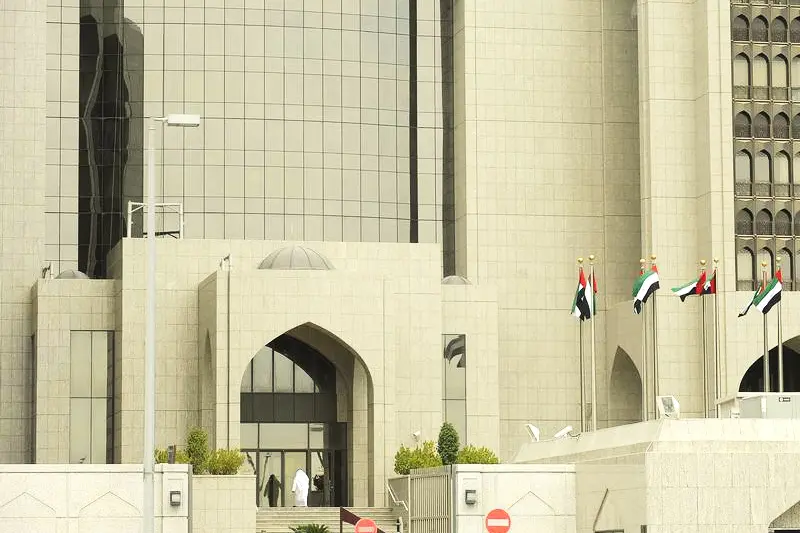PHOTO
Monday, Nov 16, 2015
Dubai: The Central Bank of UAE is monitoring potential risks to the UAE banking sector in the context of global and regional economic slow down, said Mubarak Rashed Al Mansouri, Governor of the Central Bank of UAE at the Middle East Banking Forum on Monday.
“With the major stakeholders, the central bank is closely monitoring the financial soundness indicators for the banking sector to make sure potential vulnerabilities are identified and appropriate measures are taken on time to hedge against risks that could escalate to a full-blown crisis as our experience has taught us,” Al Mansouri said.
The central bank governor’s comments comes at a time the UAE banking sector is experiencing a gradual increase in asset impairments in loan portfolios linked to small and medium enterprises. The banks are also facing asset valuation issues caused by the recent stock market correction and a softening of real estate prices.
Al Mansouri said the main challenges for the banking system could come from a global economic slowdown and lower oil prices, which could lead to further fiscal consolidation and tightening in bank liquidity caused by a slowdown in customer deposit levels. But the governor said the banking sector in the country — the largest in the region with Dh2.4 trillion in assets — remains strong with a high capital adequacy ratio and continuing growth in the deposit base.
The steady increase in customer deposits has reached Dh1.4 trillion, improving the overall liquidity situation and strong capital base, with the average capital adequacy ratio above 18 per cent, exceeding UAE regulatory requirement.
“These strengths allowed our banking sector to expand credit despite a noticeable slowdown in deposit growth. This was made possible thanks to a satisfactory, albeit tightening liquidity situation for banks,” Al Mansouri said.
The governor said the overall ratio of nonperforming loans (NPLs) is down from 8.6 per cent in the second half of 2014 to just 6.3 per cent as of September 2015. Continued improvement in the balance sheets of banks increased the lending to stable resources ratio from 85.2 per cent at the end of last year to 88.1 per cent at the end of September.
“Despite the recent tightening of liquidity, banks have managed to accommodate demand for credit, capitalising on ample liquidity they had accumulated,” he said.
The central bank governor said under the current economic environment, the banking sector is likely to be impacted by the slowdown in the non-oil activities in the UAE and may necessitate prudent measures.
The reduction in the oil price which led to a fall in government revenues may trigger further fiscal consolidation and lower loan demand. Further tightening in bank liquidity is expected due to slowdown in customer deposits. Additionally, banks are likely to face higher cost of funds following a lift-off of interest rates in the US starting December.
“The immediate impact on our side will be an appropriate adjustment of our CD rates, especially at the short end,” said Al Mansouri.
The governor said UAE banks are also facing challenges from the so-called ‘Bank de-risking’, which puts greater regulations on money transfers, has become a serious obstacle for all international transactions in US dollars with implications for banks and exchange houses. The governor said the UAE central bank is working closely with its regional peers and relevant international regulators in meeting compliance requirements while communicating special operating conditions in the GCC.
Then early this month the central bank raised these concerns with the US authorities at the high-level event of the US — Gulf Public- Private Banking Dialogue in New York.
“We have made it very clear that de-risking has proven to be wholesale and indiscriminate to our financial institutions and that it is unduly hurting remittances from our large expatriate workforce to their home countries. We asked that concerns over compliance requirements need to be communicated more effectively to Correspondent Banks, which in turn need to better understand the customer base and risk profiles for banks and exchange houses operating in our country and in the GCC at large, and act accordingly,” said Al Mansouri.
By Babu Das Augustine Banking Editor
Gulf News 2015. All rights reserved.





















